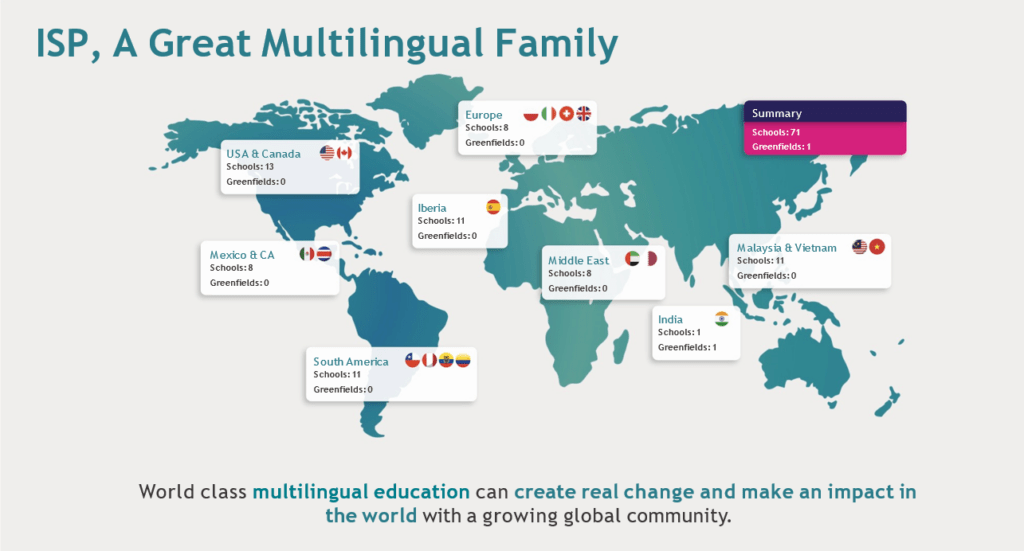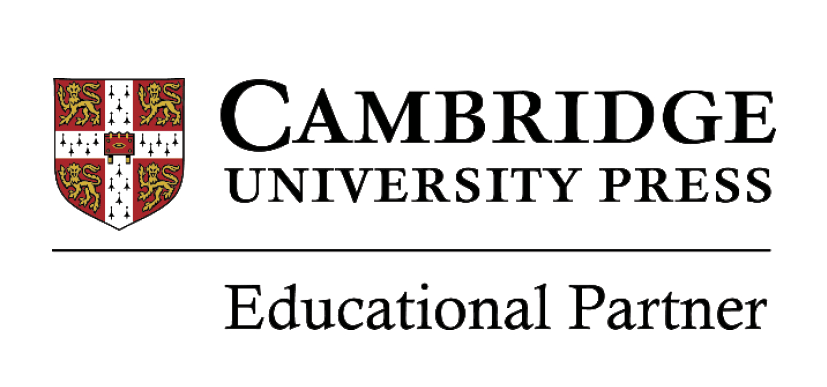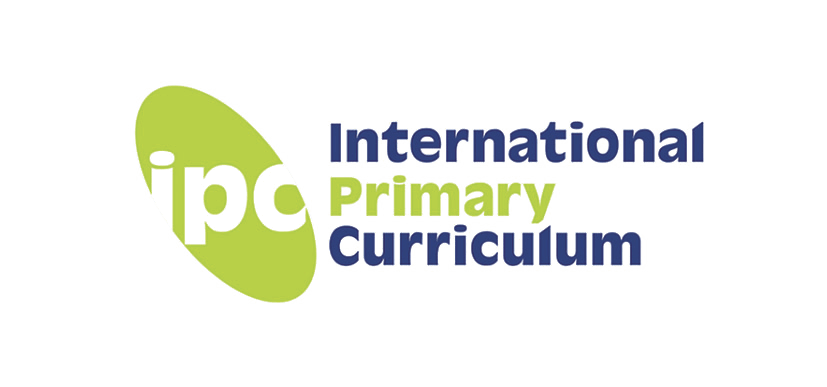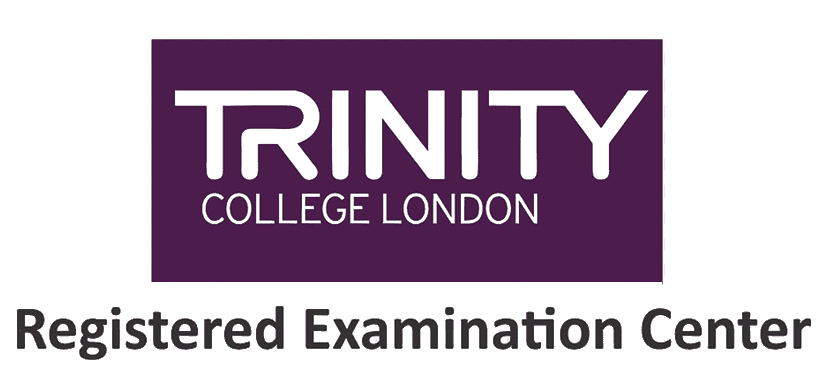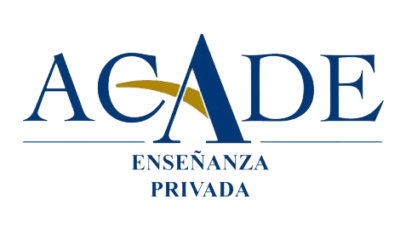Benefits of multilingualism
At ISP Schools, we help students, regardless of the language they speak, to make friends with local students, better understand the local culture, and interact more effectively with their peers. As English continues to be the language of global trade and commerce, an English-speaking school gives our students an important edge when it comes to career advancement. Furthermore, ISP Schools, support them further with the learning of other foreign languages such as French, German, Russian or Chinese.
Through our EAL programmes, we help non-English speakers understand and master English language concepts more quickly, allowing them to keep up with the pace of the English-speaking classroom. EAL programs can help these students develop a greater sense of self-worth in their new environment, as they become more proficient in the language of the school. By immersing themselves in an English-speaking school, students gain a greater understanding of local culture and customs, helping them to fit into their new home more easily.
One language sets you in a corridor for life. Two languages open every door along the way.

THE FOCUS OF MULTILINGUALISM AT ISP SCHOOLS
The focus of multilingualism at ISP Schools lies in the following 5 cornerstones:
- Improved Academic Performance: Learning a second language can help to improve academic performance in other subjects. This is because multilingualism helps to develop enhanced problem-solving and critical thinking skills, as well as improved memory, concentration, and mental flexibility.
- Broader World View: Being able to communicate in different languages gives students the opportunity to experience different cultures, languages, and perspectives. This can help to foster a greater understanding and appreciation for different people and cultures.
- Improved Cognitive Function: Studies have shown that learning a second language can help improve cognitive functions such as memory, concentration, problem-solving, and decision-making.
- Enhanced Communication Skills: Being able to communicate in multiple languages can help to improve communication skills overall. This is because it helps to develop a better understanding of grammar and language structure, as well as improved pronunciation and listening skills.
- Increased Employability: In an increasingly globalized world, being able to communicate in multiple languages is becoming a must-have skill in the job market. Employers often look for candidates who have an understanding of different cultures and can communicate in multiple languages for global roles.
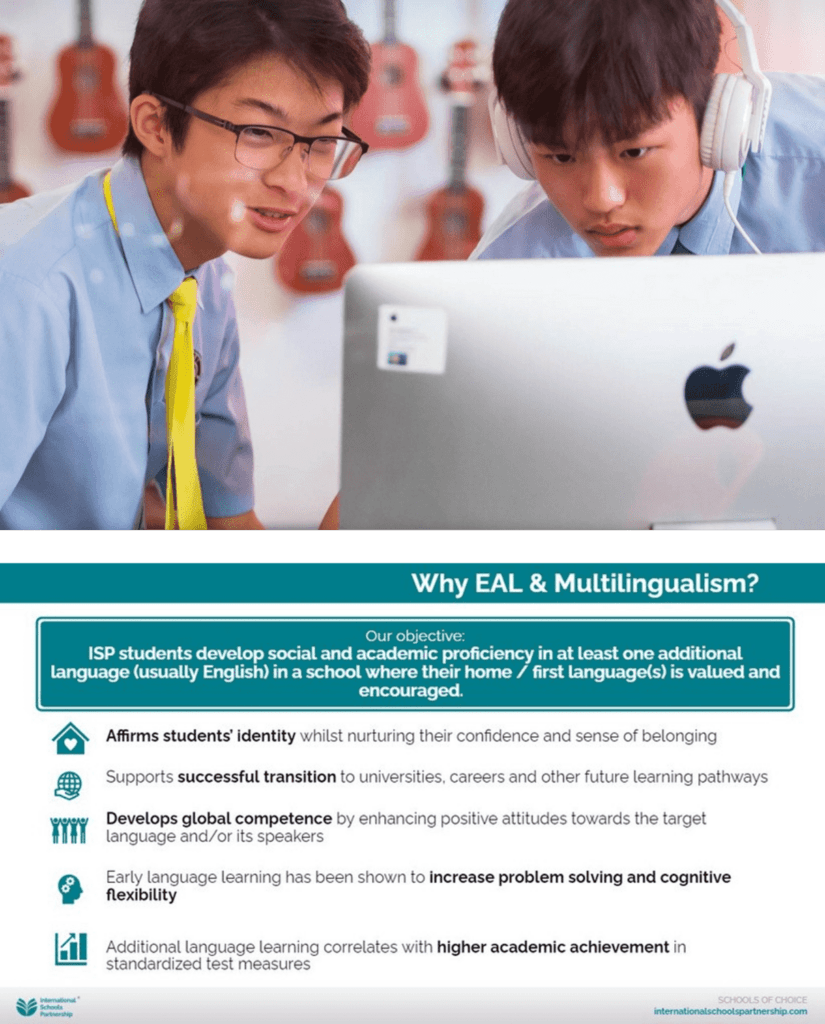
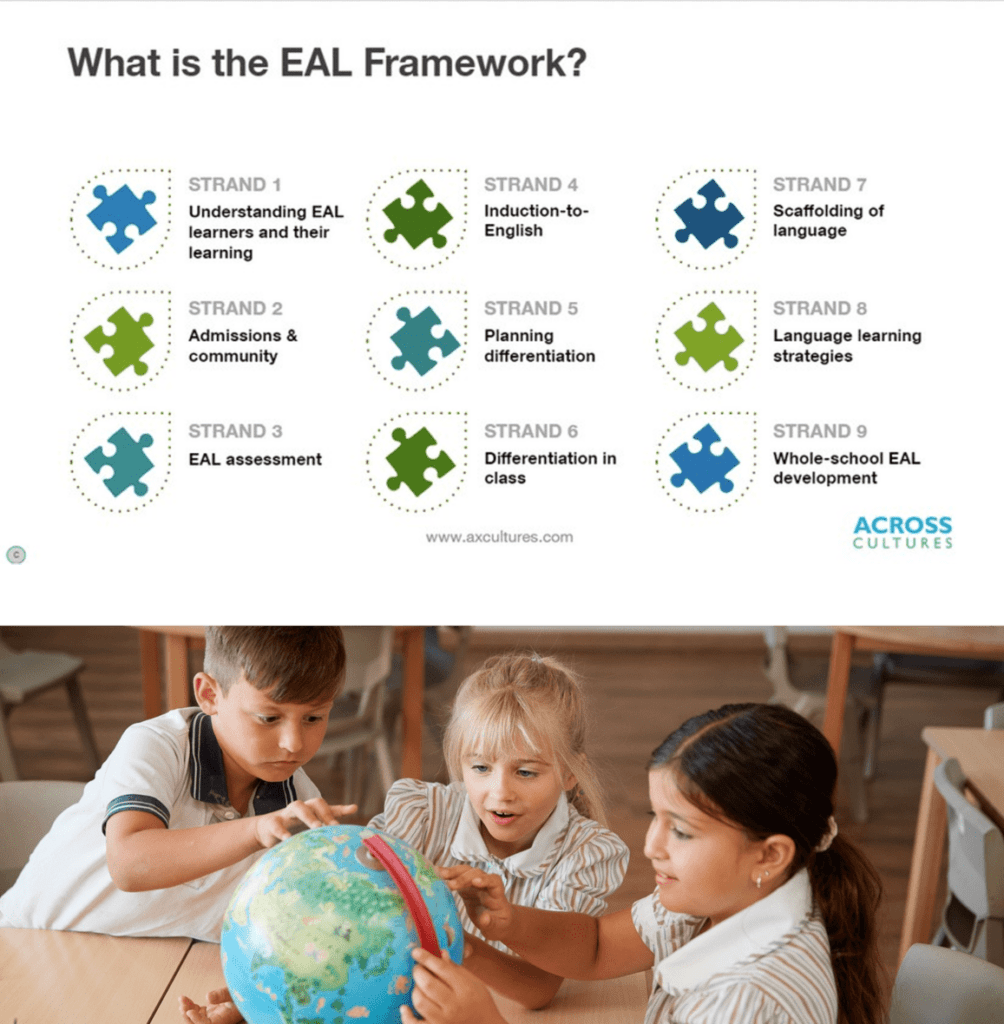
HOW DO ISP TEACHERS SUPPORT OUR EAL STUDENTS?
Skilling teachers to support their work with EAL students is very important and ISP has been funding places for colleagues to attend courses led by Across Cultures. Across Cultures has a clear framework that guides schools to ensure they have a secure approach to supporting EAL & Multilingualism in their schools.
The 9 areas focus support ISP’s ambition of integrating multilingualism across all aspects of learning and teaching.
As a Region, we recognize that it is key to support teacher development, and over the next few years we want to:
Train teachers in planning for language learning challenges alongside content learning outcomes
- Develop a clear and accessible, easy-to-use scaffolding resource for staff
- Develop differentiation strategies for EAL students – train class teachers in these and in the use of substitution tables, and provide templates
- Provide strategies for pre-teaching including research in mother tongue learning
All schools will be using the EAL & Multilingualism Roadmap to help evaluate where they are in terms of their provision and approach.
